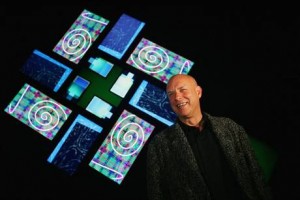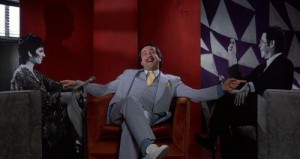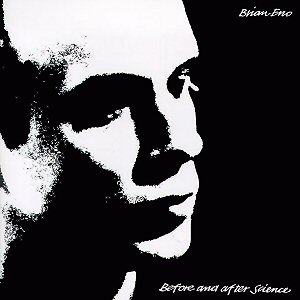Was the German true stereo pressing of Magical Mystery Tour.
No, I’m just kidding.
The most expensive record I ever bought was a live album called June 1, 1974, by Kevin Ayers, John Cale, Eno & Nico.
I bought it in 1974 or early 1975 at E.J. Korvette’s in Springfield. I didn’t understand why an album with that title was available at that point in the discounted rack. I was totally unfamiliar with Kevin Ayers. I knew Cale from the Velvet Underground and the same with Nico, but knew nothing of their solo work. I knew Eno was a member of Roxy Music; I knew a bit about them but, again, nothing of his solo career (which at that point had only just started).
I take flyers on albums all the time now, but it was unusual then; there wasn’t a lot of disposable income and each purchase had to count. But the price tag on this album was $1.99 and so was a small risk to learn about Cale, Eno, & Nico. And Kevin Ayers, whoever he was.
But wait a minute…$1.99…most expensive?!?!
Here’s how that makes sense; here’s the sense in which I mean it.
I don’t think there is any other album in my collection which has so directly led to so many other purchases.
It started off with two Eno songs, “Driving Me Backwards” and “Baby’s On Fire.” I loved them. Then Cale’s version of “Heartbreak Hotel.” Wow, great! And then Nico’s cover of “The End.” The remaining five songs were Kevin Ayers.’
This is my favorite track from the album and my favorite ever Kevin Ayers song.
This show was an Ayers gig at the Rainbow Theatre in London, to which he invited Cale and Nico. Cale brought along Eno. Robert Wyatt and Mike Oldfield were also guests, sitting in with the band.
Ayers was the real revelation of this album for me. I immediately loved him. I’ve since bought all his solo albums as well as the first Soft Machine album; he was a founding member of that band but only stayed for the first album. I still love John Cale and have bought everything he has put out. And I was definitely in for Eno’s pop albums and do have a few of the early ambient ones including the collaborations with Robert Fripp. Add in a couple of Nico albums.
Those Ayers albums and the Eno ones were all imports, pricey at the time.
So, this $1.99 album led directly to about 80 albums being purchased. Yes, it was a mighty expensive album. But it was a lot of great music.
What’s the most expensive album – in this way – in your collection?




